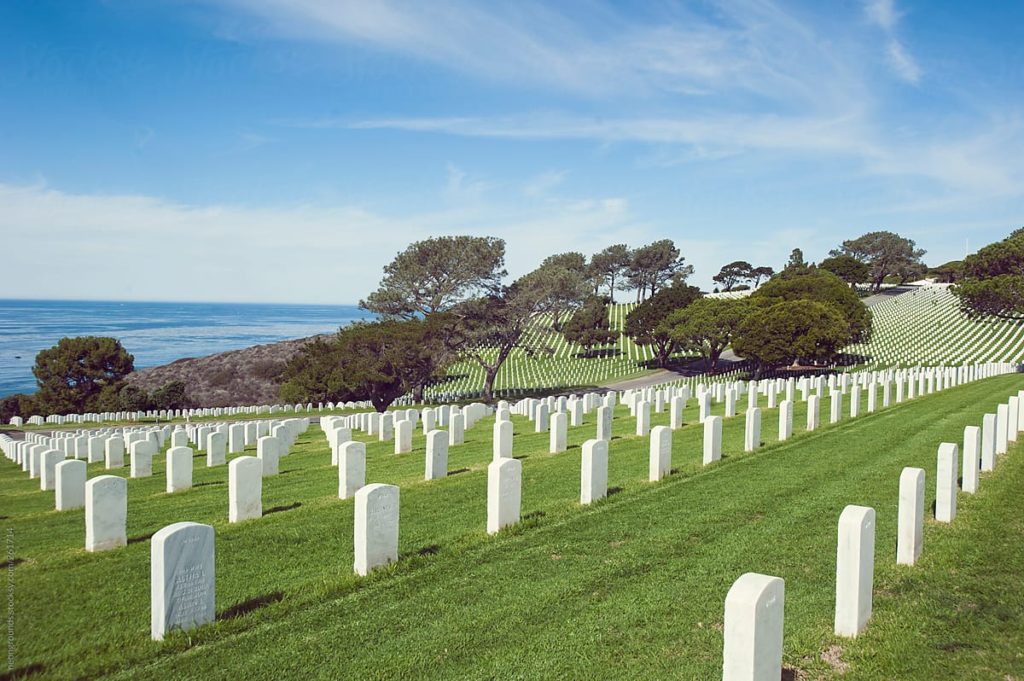Monday – Memorial Day
Edith Wharton supplies today’s Memorial Day poem. It appears that the World War I graveyard she mentions is near the coast, which leads the poet to reflect upon the contrast between natural beauty and the young dead. Because of these senseless deaths, she will no longer be able to simply enjoy the roses and “the jonquil-twinkling meadow.”
It is not only the poet who has lost this enjoyment: she imagines those who have died “strain[ing] through the sod to see these perfect skies.” There is a hint of regeneration at the end—new wheat springing over the graves—but every recurring season will remind us that that the dead cannot enjoy the beauty that we do. It is a way of capturing the heartbreak of loss.
The Young Dead
By Edith Wharton
Ah, how I pity the young dead who gave
All that they were, and might become, that we
With tired eyes should watch this perfect sea
Re-weave its patterning of silver wave
Round scented cliffs of arbutus and bay.
No more shall any rose along the way,
The myrtled way that wanders to the shore,
Nor jonquil-twinkling meadow any more,
Nor the warm lavender that takes the spray,
Smell only of sea-salt and the sun.
But, through recurring seasons, every one
Shall speak to us with lips the darkness closes,
Shall look at us with eyes that missed the roses,
Clutch us with hands whose work was just begun,
Laid idle now beneath the earth we tread—
And always we shall walk with the young dead.—
Ah, how I pity the young dead, whose eyes
Strain through the sod to see these perfect skies,
Who feel the new wheat springing in their stead,
And the lark singing for them overhead!


